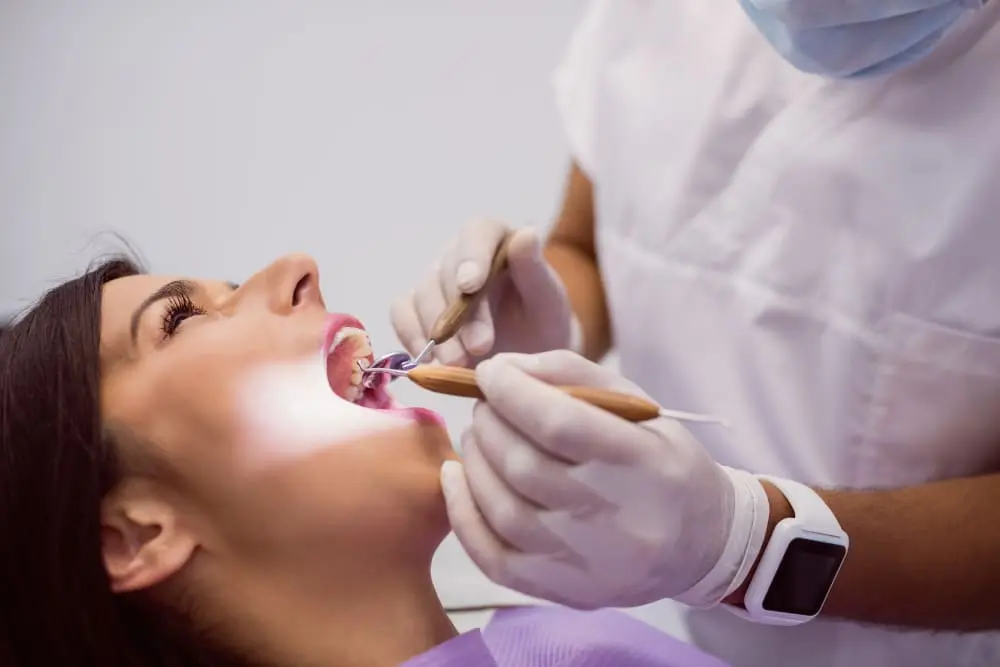

Tooth grinding, also known as bruxism, is a common issue that affects many people. It entails the uncontrollably clenching or grinding of teeth, frequently when one is asleep. This condition can have several causes and may lead to various oral health problems. Understanding the impact of tooth grinding on your oral health is essential for maintaining a healthy smile. In this article, we will explore the causes of tooth grinding, its effects on your oral health, and ways to manage and prevent it.
Tooth grinding, or bruxism, occurs when you grind or clench your teeth without realizing it. This may occur at any time of day or night. While some people may experience bruxism occasionally, others might do it frequently. The condition often results in wearing down the tooth enamel, which can lead to other dental issues.
You will be interested on: Teeth grinding treatment in Dubai
Tooth grinding can be triggered by various factors, including:
High levels of stress and anxiety are among the most common causes of tooth grinding. When you are stressed, your body may tense up, and this can extend to your jaw muscles, leading to grinding.
Conditions such as sleep apnea or snoring can contribute to tooth grinding. People with these disorders may grind their teeth as a response to interrupted sleep.
If your teeth are misaligned, it can cause an uneven bite. This misalignment may lead to grinding as your body tries to correct the bite discrepancy.
Certain medications, particularly antidepressants, can have side effects that include tooth grinding. If you notice bruxism after starting a new medication, consult your doctor.
Excessive caffeine and alcohol consumption can increase the likelihood of tooth grinding. These substances can contribute to muscle tension and irritability.
You will be interested on: Teeth Cleaning Cost in Dubai
Tooth grinding can have several negative effects on your oral health. Here’s what you need to know:
Continuous grinding wears down the enamel, the protective outer layer of your teeth. Once enamel is lost, your teeth become more vulnerable to decay and sensitivity.
Grinding can lead to chipped, cracked, or broken teeth. This damage may require dental treatments such as fillings, crowns, or even root canals.
Bruxism can strain your jaw muscles and lead to temporomandibular joint (TMJ) disorders. Symptoms of TMJ disorders include jaw pain, clicking sounds, and difficulty opening or closing your mouth.
Grinding can cause gum tissue to recede, exposing the roots of your teeth. This can lead to increased sensitivity and a higher risk of gum disease.
The tension from grinding can radiate to other areas, causing headaches and earaches. These symptoms can be particularly bothersome and may affect your overall well-being.
You will be interested on: Smile Makeover in Dubai
Identifying tooth grinding early can help prevent severe damage. Look out for these symptoms:
If you hear grinding noises while you sleep or notice them in the morning, it may indicate bruxism.
Check for flattened or worn-down areas on your teeth.
Persistent soreness in your jaw or difficulty moving your jaw can be signs of tooth grinding.
Increased sensitivity to hot, cold, or sweet foods may result from enamel erosion caused by grinding.
You will be interested on: Tooth Stain Removal in Dubai
Managing tooth grinding involves addressing its underlying causes and protecting your teeth. Here are some effective strategies:
Since stress is a significant trigger, finding ways to manage stress can help reduce bruxism. Techniques such as meditation, exercise, and therapy can be beneficial.
A custom-fitted mouthguard, also known as a night guard, can protect your teeth from the damage caused by grinding. Your dentist can create a mouthguard tailored to fit your mouth.
If misaligned teeth are contributing to your bruxism, consider orthodontic treatments to correct the alignment. This can reduce the urge to grind your teeth.
Reducing your intake of caffeine and alcohol can help decrease the likelihood of grinding. These substances can contribute to muscle tension and increase grinding behavior.
Ensure you get adequate, restful sleep each night. Good sleep hygiene practices can help reduce grinding caused by sleep disorders.
Regular dental check-ups are crucial for monitoring the effects of bruxism. Dentist can assess the damage and recommend appropriate treatments, such as dental restorations or therapies.

Tooth grinding is a common but potentially serious issue that can impact your oral health. Understanding the causes and effects of bruxism is crucial for managing and preventing it. By addressing stress, using protective mouthguards, and maintaining good oral hygiene, you can reduce the risk of tooth grinding and protect your smile. If you suspect you are grinding your teeth, consult with a dentist to develop a personalized plan to address the issue and safeguard your oral health.